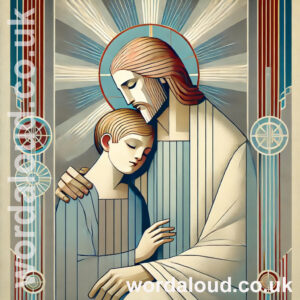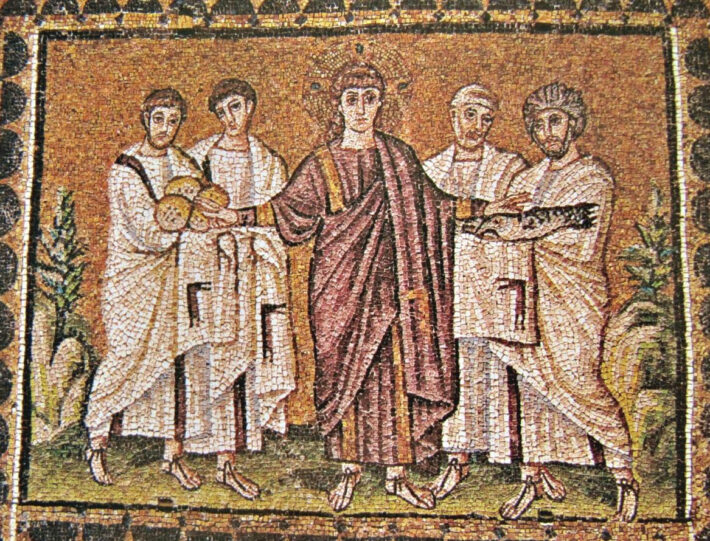Christian Art | Daily Bible Verses For Advent | King James Audio Bible KJV | Miracles Of Jesus
Matthew 15: 29-37 | Advent Week 1, Wednesday | King James Audio Bible KJV | Miracles Of Jesus
29 And Jesus departed from thence, and came nigh unto the sea of Galilee; and went up into a mountain, and sat down there.
30 And great multitudes came unto him, having with them those that were lame, blind, dumb, maimed, and many others, and cast them down at Jesus’ feet; and he healed them:
31 Insomuch that the multitude wondered, when they saw the dumb to speak, the maimed to be whole, the lame to walk, and the blind to see: and they glorified the God of Israel.
32 ¶ Then Jesus called his disciples unto him, and said, I have compassion on the multitude, because they continue with me now three days, and have nothing to eat: and I will not send them away fasting, lest they faint in the way.
33 And his disciples say unto him, Whence should we have so much bread in the wilderness, as to fill so great a multitude?
34 And Jesus saith unto them, How many loaves have ye? And they said, Seven, and a few little fishes.
35 And he commanded the multitude to sit down on the ground.
36 And he took the seven loaves and the fishes, and gave thanks, and brake them, and gave to his disciples, and the disciples to the multitude.
37 And they did all eat, and were filled: and they took up of the broken meat that was left seven baskets full.
This, in Matthew’s Gospel, is the second miracle of the loaves and the fishes. Jesus is preaching and working his healing miracles in the border country, where Jews and pagans live side by side. The landscape seems symbolic, archetypal; as Jesus nears the Sea of Galilee, he goes up into a mountain. It is here that Jesus’ miracles lead both Jews and pagans to glorify the God of Israel.
We may be struck by Jesus’ compassion for those who have followed him. He cares both for their deepest spiritual needs and for their most basic need for physical sustenance. So then, from the minimal food available, Jesus provides a great abundance for everyone to eat, taking care once again to collect the scraps so that nothing be wasted.
Once again, the people are asked to sit down, to assume a peaceful attitude one to another – Christ’s way is one of peace, uniting people this way, and not of violent insurrection against Rome, such as many expected of the coming Messiah. With the giving thanks, the blessing of the food, and the breaking of the food, the whole variety of people present are included in the intimate, friendly, and brotherly act of sharing a meal, such barriers as may have stood between them being broken down.
5 Then the eyes of the blind shall be opened, and the ears of the deaf shall be unstopped.
6 Then shall the lame man leap as an hart, and the tongue of the dumb sing: for in the wilderness shall waters break out, and streams in the desert.
7 And the parched ground shall become a pool, and the thirsty land springs of water: in the habitation of dragons, where each lay, shall be grass with reeds and rushes.
8 And an highway shall be there, and a way, and it shall be called The way of holiness; the unclean shall not pass over it; but it shall be for those: the wayfaring men, though fools, shall not err therein.
9 No lion shall be there, nor any ravenous beast shall go up thereon, it shall not be found there; but the redeemed shall walk there:
10 And the ransomed of the Lord shall return, and come to Zion with songs and everlasting joy upon their heads: they shall obtain joy and gladness, and sorrow and sighing shall flee away. (Isaiah 35: 5-10)
Concluding Prayer | Love Revealed By Jesus Christ
Prepare our hearts, Lord,
by the power of your grace.
When Christ comes,
may he find us worthy
to receive from his hand the bread of heaven
at the feast of eternal life
We make our prayer through our Lord.
![]()

![]()








